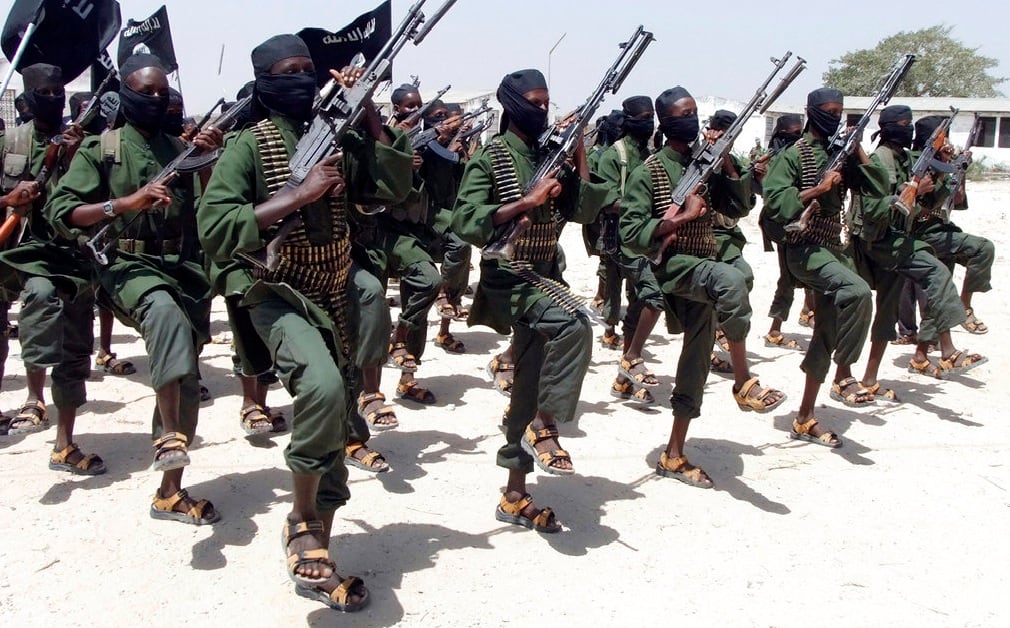NAIROBI, Kenya — The U.S. military on Thursday announced the latest of several deadly airstrikes this week against al-Shabab extremists in Somalia as it targets a region well north of where the al-Qaida-linked fighters control large parts of the country.
The U.S. Africa Command statement said two new strikes killed six fighters and destroyed a weapons cache on Wednesday near Harardere. That al-Shabab-controlled community last month was targeted by the deadliest U.S. airstrike in almost a year, with dozens of extremists killed.
The U.S. has now carried out 35 airstrikes this year against al-Shabab, Africa’s deadliest Islamic extremist group, which continues to stage deadly attacks in the capital, Mogadishu, and other cities.
Somali intelligence officials said the latest airstrikes targeted locations in the rural villages of Jimo-Luqunyar and Adaley, 75 kilometers (46 miles) northeast of Harardere.
They said at least four missiles hit a base for over 30 extremists assigned to collect livestock taxes from nomadic communities in the area. The officials requested anonymity because they were not authorized to speak to the media.
Two U.S. airstrikes on Monday killed 37 extremists and one on Tuesday killed seven.
RELATED

This week’s airstrikes have been carried out in Mudug region, well north of Mogadishu and the south and central areas where al-Shabab continues to hold large parts of rural land.
Al-Shabab recently relocated to Harardere as a key training and planning base after the U.S. and allies increased pressure and surveillance further south. Somali intelligence officials last month told The Associated Press that last month's U.S. airstrike near Harardere largely destroyed a training camp where recruits were preparing to graduate. The officials said more than 75 people were killed, while the U.S. said about 60 extremists were killed.
The Mudug region, however, is a more difficult hideout for al-Shabab as its fighters prefer the shrubbier ground further south.
The U.S. military has said the airstrikes are aimed at reducing al-Shabab’s ability to plan attacks, disrupting its leadership networks and limiting its freedom of movement in the Horn of Africa nation.





